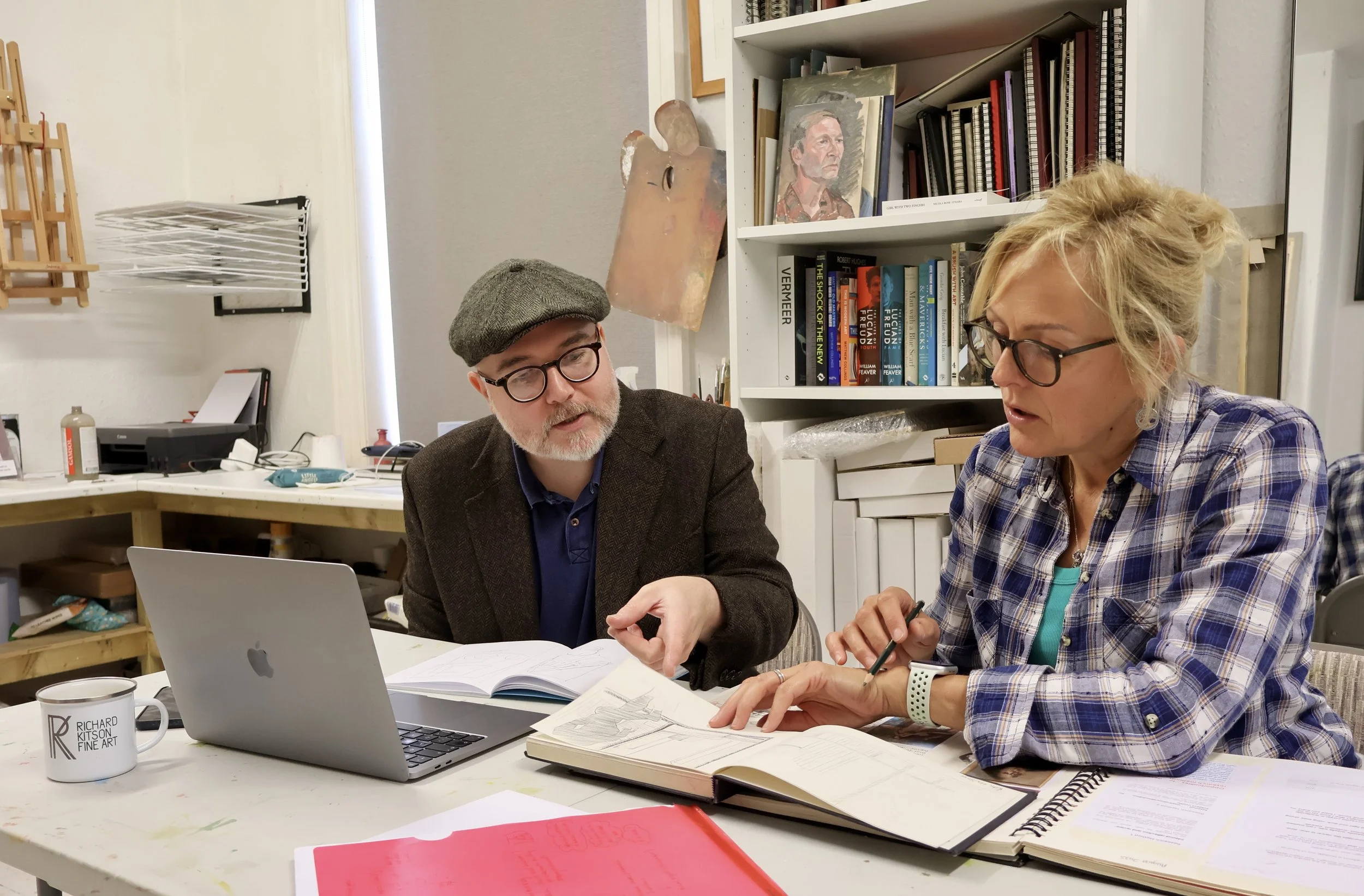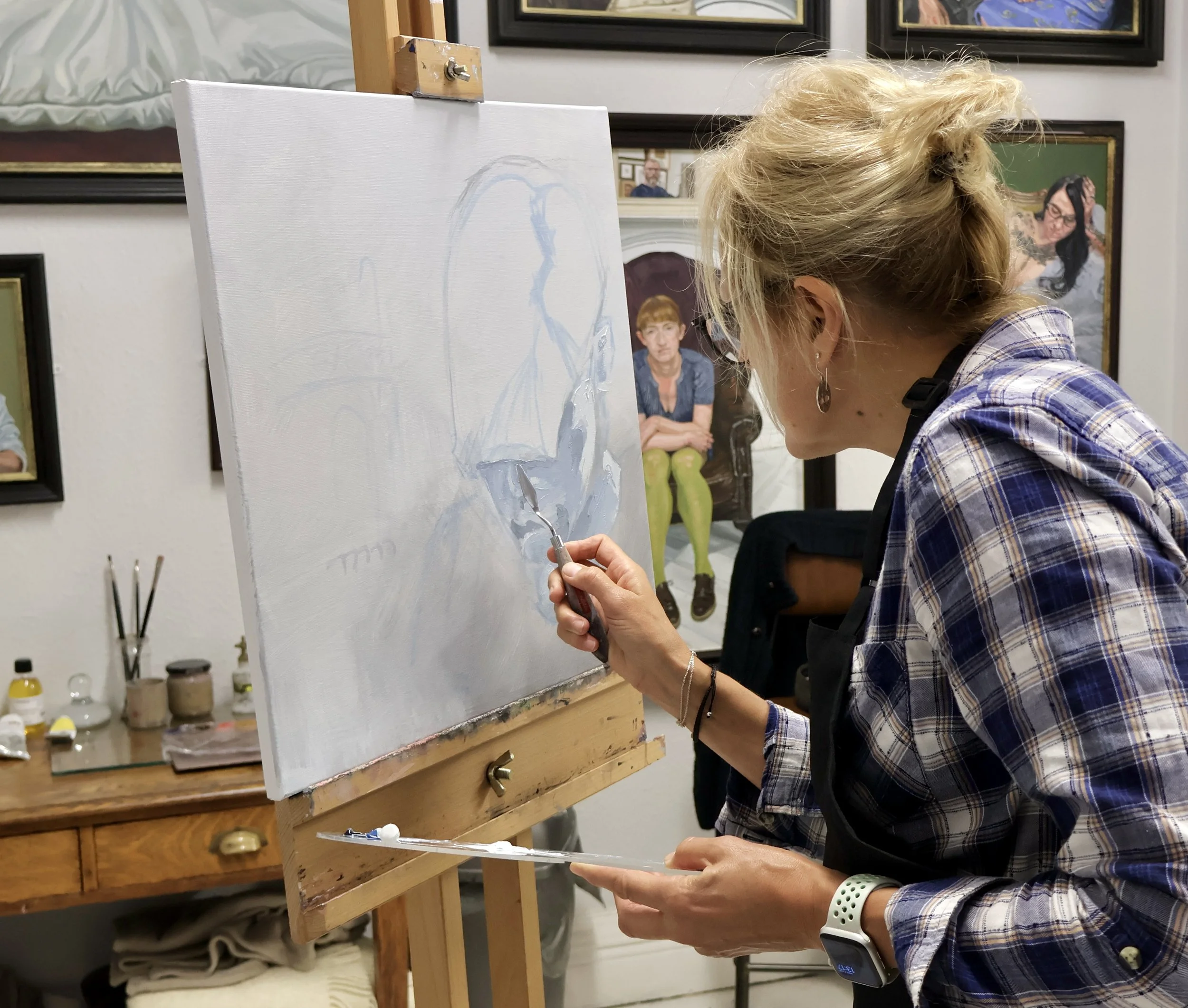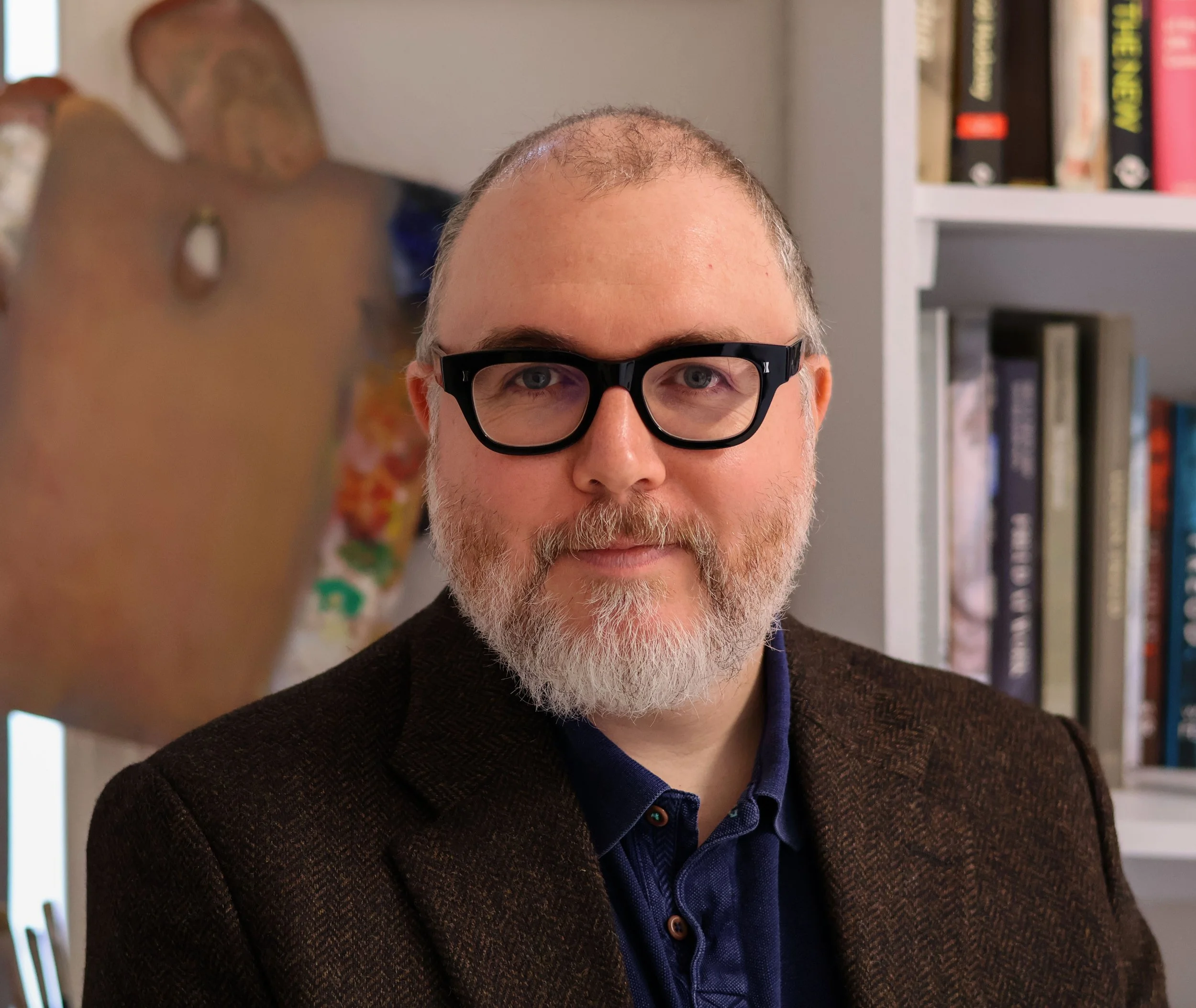Mentoring with Richard Kitson
“Why do people feel compelled to make art?”
It’s a question that has been asked many times but safe to say many people make art because it is very rewarding, especially when the artwork you are making goes well. Art is also very challenging and sometimes the compulsion can lead to frustration and a feeling of being lost. For many artists, their practice is a solo pursuit with hours spent practicing in the hope of making solid progress without the support of peers who can relate to the realities of a creative practice.
If you are an artist who is feeling frustrated, stuck or lacking direction then it may be time to consider mentoring as the next step in your artistic journey. Below are various mentoring options to suit a range of budgets and requirements.
1. Mini Critique
£40
A focused, written review of your artwork
Perfect if you’d like professional feedback on a particular piece or an honest, encouraging critique to help you develop further.
What’s included:
Send me 1–2 clear photos of your artwork.
I’ll send back a detailed written critique (around 200–400 words) with suggestions for composition, tone, or technique
Optional: add a short voice or video critique for an extra £15
Best for artists who want gentle, constructive feedback to guide their next painting.
2. One-to-One Mentoring (In Person or via Zoom)
£75
A personalised 1hr session
This session is all about you — your art, your process, and your questions. We can review a recent piece, explore painting techniques, or discuss how to sell and market your work.
What’s included:
1hr private one-to-one either in person (at my studio) or via zoom.
Personalised advice and discussion.
Written summary/action points during the meeting.
Ideal if you’d like a boost of direction or clarity from an experienced artist.
Artist Claire Paterson working in Richard’s studio.
3. Monthly Creative Development
£170/month
Ongoing mentorship and support to help you build confidence and momentum.
A space to develop your art and creative business with regular feedback. Ideal for artists who cannot commit to an extended mentorship program (see below) but wish to receive regular support and professional guidance.
What’s included each month:
One 1hr tutorial either in person (at my studio) or via Zoom.
Up to two written or video critiques.
Email support in between for questions or small updates.
One 20 minute summary tutorial either in person or via zoom.
Perfect if you want steady, structured support and someone to help you stay motivated and progressing month by month.
4. Extended Mentorship - 6 Month Program
£300/month (Cost can be paid in two instalments of £900)
In-depth creative and professional guidance for committed artists.
For artists who are ready to grow seriously — whether refining their artistic voice, developing a portfolio, or establishing an art business. Perfect for artists who are motivated to work independently with the support of an experienced, professional artist.
What’s included each month:
One 1.5hr tutorial (In Person or via Zoom) at the end of every month to discuss work made and set targets.
Set targets/activities include practice led and academic research.
Four ‘check in’s’ per month to discuss progress via email.
Priority email response if you have questions or get stuck at any point.
Option to work in Richard’s studio for one day per month with Richard on hand for guidance.
Business guidance (pricing, commissions, marketing, client relationships, etc.)
Best suited to artists building a long-term art practice who would like deeper, ongoing mentorship.
Things to consider…
All mentoring is tailored to you — whether you draw/paint people, objects, landscapes or whatever.
Spaces are limited so I can give each artist proper attention.
You’re welcome to start with a single session before committing to monthly mentoring.
It all starts with an enquiry so please get in touch via the link below.
Your Mentor
To read more about my creative journey from teacher to professional artist, click the button below.
What Artists Say About Mentoring with Richard Kitson
I started working with Richard as my mentor, when I was getting back into my art practice after 40 years off. Richard has provided structure and support for my development, setting challenges and providing constructive feedback. This has led to my skills developing but more importantly it is helping me create a clearer focus on who I am as an artist and what I really want to be saying and working on. Richard has an ability to understand where I am and what I need, before I do. It is this intuition, knowledge and experience that makes Richard a fabulous mentor. Claire Paterson - Six month mentoring programme.



